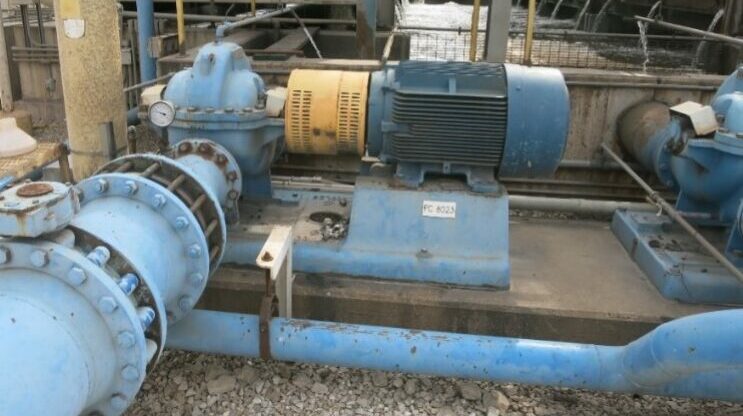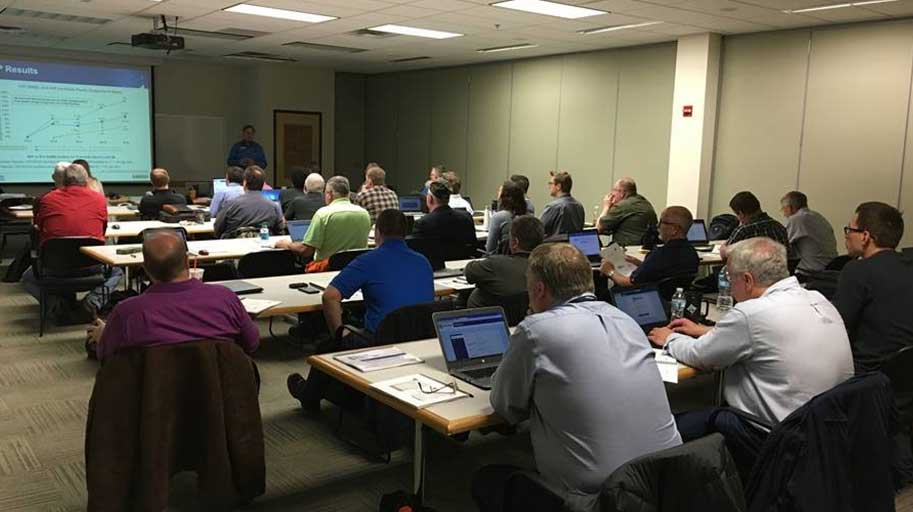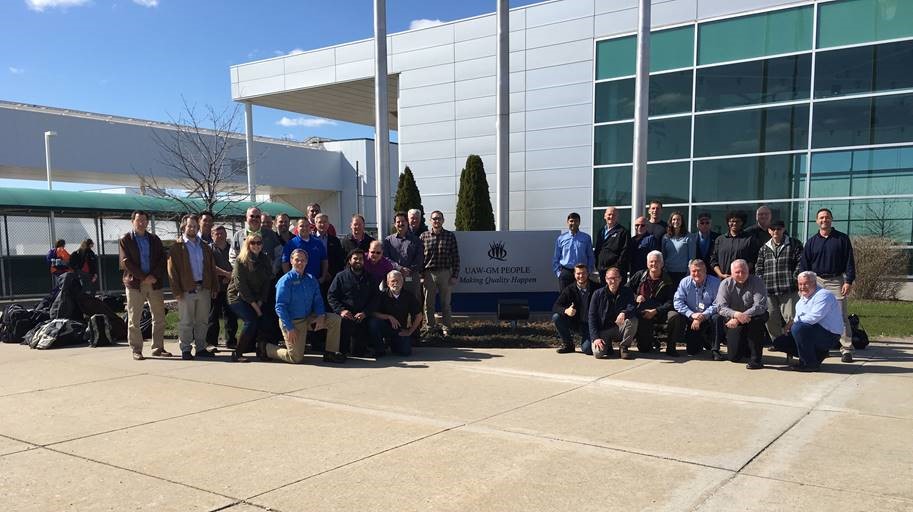The In-Plant Trainings (INPLTs) offered by the U.S. Department of Energy’s Better Plants program are multi-day workshops led by industry experts. INPLTs include both classroom and field-based sessions that train the attendees to identify energy conservation opportunities, quantify savings from those opportunities, and implement projects to realize the energy and cost savings. These training workshops enhance the attendees’ understanding of working principles, knowledge of best practices, and capability of analyzing the energy performance of industrial energy systems. As of September 2022, the Better Plants program has hosted over 140 INPLTs with about 2,400 participants, helping to identify more than $41 million in energy cost savings opportunities.
The Better Plants team piloted a cohort of Virtual In-Plant Trainings (VINPLTs) at the end of 2020 as a means of continuing these interactive training workshops during the pandemic. After piloting two very successful sessions on Industrial Refrigeration and Wastewater Treatment operations, Better Plants and Oak Ridge National Lab decided to offer VINPLTs all year around for 14 energy topics. As of now, more than 1200 people attended these VINPLT session and over $9.2M energy savings opportunities have been identified.
The Better Plants program will deliver a VINPLT on pumping systems (PS) systems during July 13 to August 31, 2023. The PS VINPLT will be performed by industrial experts and Technical Account Managers using online video communication technologies. The PS VINPLT comprises eight (8) 2-hour online training sessions (1.5-hours formal training and optional 0.5-hour Q&A) that will be delivered on every Thursday 10:00AM–12:00PM ET for eight (8) consecutive weeks. Participating in this VINPLT is free and open to all US manufacturers. This VINPLT event is limited to 25 participants from 6–8 companies or facilities.
Participants will be trained on pumping fundamentals and undertaking of a system-specific energy assessment, including hands-on training on the pumping assessment module within the Manufacturing Energy Assessment Software for Utility Reduction (MEASUR) tool. To maximize the benefits from attending VINPLTs, homework assignments will be given to the participants at the end of each session and will be due by the next session. These homework assignments are designed to enhance participants’ understanding on the pumping systems, as well as to identify and quantify energy savings opportunities. During the last session of the VINPLT, participants are expected to create a summary presentation based on their assessment, present their findings, and share the scrubbed version with DOE.
At the completion of the VINPLT, Professional Development Hours (PDHs) Certificates will be prepared for the attendees on demand basis. Participants are expected to collect measurements/data from their own pumping equipment, perform an assessment, and identify energy efficiency opportunities with help from the instructors. To collect the assessment data, in some cases, diagnostic equipment will be arranged and shipped to the partners. The Better Plants diagnostic equipment are available on a first come, first serve basis.
Jul 13 to Aug 31, 2023; Every Thursday 10:00AM–12:00PM ET (1.5-hour formal training + optional 0.5-hour Q&A)
Week 1 – Pumping System Basics and Introduction to PS VINPLT; Jul 13, 2023
Training experts introduce the rationale for system-specific in-plant trainings, describe the overall process of conducting a pumping system assessment, provide an overview of the fundamentals of pumping systems and fluid relationships, and describe the pre-screening process used during an assessment.
Week 2 – PS Assessment Methodology, pump curves, and the pump affinity laws; Jul 20, 2023
Training experts will continue with an in-depth discussion on PS assessment methodology and demonstrate the PS assessment module within DOE’s Manufacturing Energy Assessment Software for Utility Reduction (MEASUR) tool. The content includes pump curves, system curves, affinity laws, multiple pump operation, and motor curves.
Week 3 – PS Parallel and series operation, variable speed operation, system curves, and an introduction to data collection; Jul 27, 2023
Training experts will discuss parallel and series operation, variable speed operation, system curves, data collection, instrument types. VINPLT attendees receive homework assignments on collecting baseline assessment data for the selected PS system identified during the pre-screening step.
Week 4 – Estimating when measuring is not possible, entering data in MEASUR; Aug 3, 2023
Training experts and VINPLT attendees review the baseline assessment data for the selected PS systems identified for the demonstration assessments. Participants provide overview on their baseline models. VINPLT attendees receive homework assignments on creating modified models within the MEASUR tool.
Week 5 – Assessment and Analysis of MEASUR Data for Finding Opportunities; Aug 10, 2023
The experts present various methods of energy-saving measures and their applicability for the industrial PS equipment. VINPLT attendees provide overview on their modified models and review their what if analysis and results with the PS experts.
Week 6 – Pumping Systems VINPLT Results Discussion; Aug 17, 2023
VINPLT attendees discuss the energy saving measures and their effect on energy use, present and discuss the results with the group, and complete the energy assessment by evaluating the results.
Week 7 – Preview of Final Presentations; Aug 24, 2023
VINPLT attendees finalize their PS assessments within the MEASUR tool. VINPLT attendees discuss and review their results slides with assistance from PS experts. VINPLT attendees receive homework assignments on finalizing their power point slides summarizing the outcomes from PS VINPLT.
Week 8 – Pumping Systems VINPLT Wrap-up Presentations; Aug 31, 2023
VINPLT attendees present and discuss the results from their virtual PS assessment and complete the VINPLT by evaluating the results. VINPLT participants could invite their upper management to attend the wrap-up session. Once completed, VINPLT attendees are given a Certification of Completion from US DOE.

Glenn T. Cunningham, PhD, P.E.
Dr. Cunningham has been involved in performing industrial energy assessments for over 35 years for a wide variety of clients investigating areas of pumping, steam, HVAC, and compressed air systems, etc. Dr. Cunningham holds the following US DOE certifications:
- US DOE Steam System Instructor
- US DOE Qualified Specialist in Process Heating Systems
- US DOE Qualified Specialist in Steam Systems
- US DOE Qualified Specialist in Pumping Systems
- US DOE Qualified Specialist in Fan Systems
Dr. Cunningham is director of the Tennessee Tech University Industrial Assessment Center which has provided over 290 U.S. Department of Energy funded energy assessments for small to medium sized industries. Dr. Cunningham has taught mechanical engineering courses at Tennessee Tech University since 1986. He has also provided HVAC and plumbing design services for several local architects since 1994 and is the engineer of record on over 100 projects. Dr. Cunningham holds the following licenses and certifications: Fellow of the American Society of Mechanical Engineers; Certified Practitioner in Energy Management Systems and Registered Professional Engineer in Tennessee and Kentucky.
 Daryl Cox
Daryl Cox
Daryl has been a member of the research staff at the Oak Ridge National Laboratory (ORNL) since 1990. He has been heavily involved in the analysis of failure characteristics for fluid system components used in commercial nuclear power plants. His current focus is energy optimization efforts in industrial pumping systems and managing interactions with industrial program partners in the Better Buildings, Better Plants Program for the U.S. Department of Energy’s Advanced Manufacturing Office. Daryl is a Qualified Specialist and Senior Instructor for the Pumping System Assessment Tool (PSAT) software tool and has conducted training on the tool for over a decade. Daryl is a former member of the ASME Operations & Maintenance Working Group on Air-operated valves and currently participates in codes and standards development for energy assessment of pumping systems. He holds a BS in Mechanical Engineering from the University of Cincinnati. He was formerly employed with the Tennessee Valley Authority, where he served on the corporate staff supporting engineering design for the nuclear power program and environmental qualification of safety-related components.



